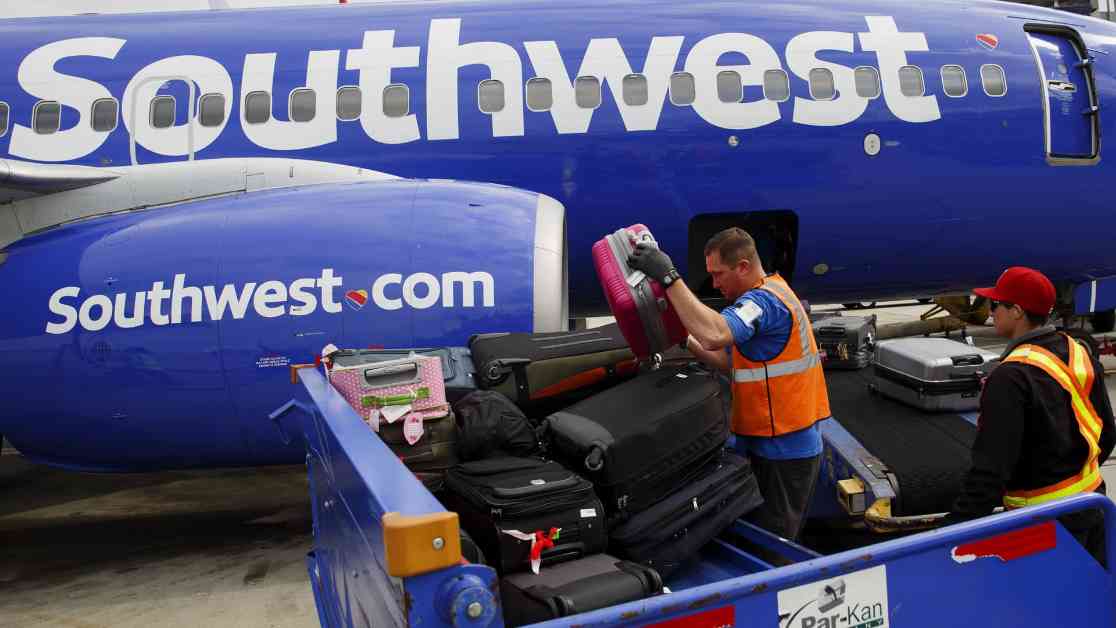Southwest Airlines: A New Era of Baggage Fees and Economy Tickets
Southwest Airlines, a longstanding beacon of customer-centric service in the airline industry, is making waves with a major announcement. The airline, known for its “bags fly free” policy that set it apart from competitors, is now introducing baggage fees for the first time. This significant shift marks a departure from decades of tradition and signals a strategic move to boost revenue streams. But what led to this decision, and what does it mean for Southwest passengers moving forward?
Pressure from activist investors, including Elliott Investment Management, played a pivotal role in this decision. Last year, Elliott Investment Management acquired a stake in Southwest Airlines and secured five board seats, advocating for swift changes within the company. As a result, Southwest is bidding farewell to its longstanding free checked bags, changeable tickets, and open seating policies in pursuit of financial growth.
Impact on Passengers and Industry
For passengers who have come to rely on Southwest’s generous baggage policies, this news may come as a shock. As of May 28, customers purchasing tickets below the top-tier fare class will incur charges for checked bags. However, exceptions exist for elite frequent flyers and Southwest credit card holders, who will continue to receive complimentary baggage allowances.
While Southwest has yet to disclose the exact fees for checked bags, industry standards suggest a range of $35 per bag on rival airlines, such as Delta, American, and United. This move aligns Southwest with its competitors, who collectively generated over $5 billion from baggage fees last year. As the largest domestic carrier in the U.S., Southwest’s decision reflects broader shifts in the aviation landscape.
Strategic Considerations and Industry Response
Southwest’s executives have long championed the “bags fly free” policy as a core customer attraction. In fact, fare and schedule aside, free baggage allowances were cited as the primary reason customers chose Southwest over other airlines. However, changing market dynamics and cost pressures have prompted a reevaluation of this strategy.
In a recent interview, Southwest’s COO, Andrew Watterson, emphasized the need for increased revenue to cover operational costs. The company anticipates that the revised baggage policy will mitigate potential market share losses resulting from fee implementation. Despite initial reservations about charging for bags, Southwest is adapting its practices to ensure long-term financial sustainability.
The airline’s broader strategic shift includes the introduction of basic economy fares, changes to its Rapid Rewards program, and adjustments to flight credit expiration terms. These initiatives reflect Southwest’s commitment to streamlining operations, enhancing customer experience, and remaining competitive in a dynamic market environment.
As Southwest navigates this transformative phase, the airline industry is closely monitoring its trajectory. Competitors, such as Delta Air Lines, view Southwest’s policy changes as an opportunity to attract passengers who value baggage perks. With evolving consumer preferences and economic uncertainties shaping the aviation landscape, Southwest’s strategic realignment underscores the need for adaptability and innovation in a competitive market.
In conclusion, Southwest Airlines’ decision to introduce baggage fees and basic economy tickets marks a significant milestone in the company’s history. While this shift may challenge traditional customer expectations, it reflects a strategic imperative to drive revenue growth and operational efficiency. As Southwest embarks on this new chapter, passengers, industry stakeholders, and aviation enthusiasts alike are poised to witness the unfolding impact of these changes on the airline industry as a whole.



















